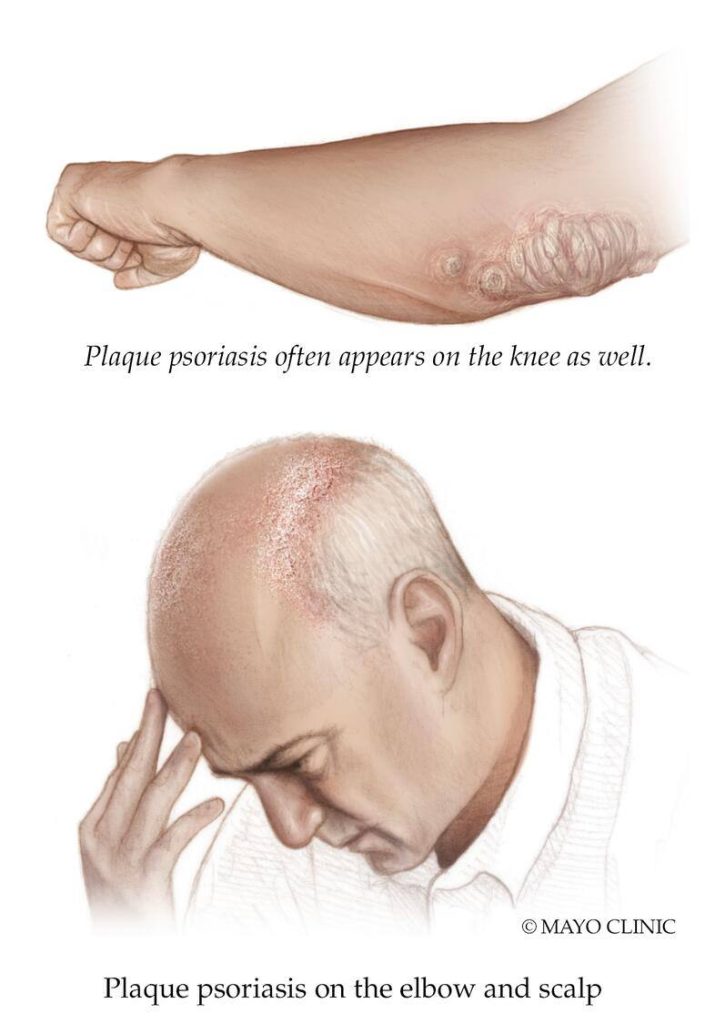Psoriasis, a skin condition affecting 2% to 3% of the population, can appear in various areas, including the scalp. Symptoms can range from mild to severe, causing uncomfortable flare-ups marked by itchiness.
Dr. Dawn Davis, a dermatologist at Mayo Clinic, says psoriasis is a multisystem inflammatory disorder primarily affecting the skin. She says psoriasis is inherited, and more people might have genes that make them more likely to develop the condition.
Learn more about psoriasis of the scalp.
Editor's note: World Psoriasis Day is Oct. 19
Journalists: Broadcast-quality video pkg (1:05) is in the downloads at the end of the post. Please courtesy: "Mayo Clinic News Network." Read the script.
Of all the symptoms associated with psoriasis of the scalp, many patients find the itch most bothersome.
"Oftentimes patients will have scales on their skin on their scalp that itches or kind of stings when they go to shampoo their scalp, and they just assume that it's really bad dandruff," says Dr. Davis.
Dr. Davis says psoriasis is thought to be an immune system issue that results in faster-than-normal growth of skin cells.

"Typically, skin will grow and shed in 28-to-30-day cycles, but psoriasis skin grows and tries to shed in a 72-hour cycle. It’s almost growing 10 times the speed of normal skin," she says.
There is no cure for psoriasis, but there are treatments.
"The treatments we use for psoriasis help decrease the inflammation in the skin and turn off that cell cascade of the immune system," Dr. Davis says.
Dr. Davis says maintaining a healthy weight and avoiding tobacco and excess alcohol can help to decrease the severity of psoriasis.
How to manage symptoms of psoriasis
- Apply moisturizer daily.
- Use gentle or mild soap.
- Don't scratch.
- Avoid stress.
Talk with your healthcare team for treatment or new strategy options if the discomfort of psoriasis is affecting your quality of life.
Related posts:
Related Articles







